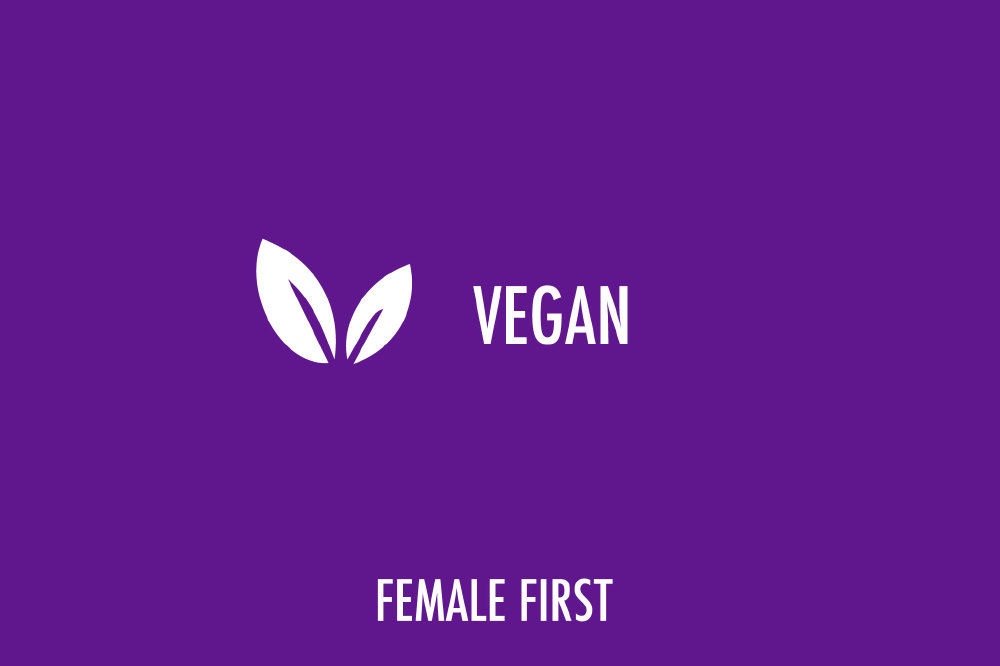By Elena Orde

Vegan on Female First
Valentine's Day, if we strip back the flowers and chocolates, is a day about love and compassion. It presents the perfect opportunity to reflect on our relationships, and examine who we really care about.
So who do we treat with compassion? The obvious answers would be our friends, family, partners and, hopefully, ourselves. Delving a little deeper, it is clear we often also include the animals we welcome into our homes. We share our lives with them, care for their health, and consider them an integral part of our families. Evidently, compassion can transcend species.
On this basis, most of us think of ourselves as animal lovers. You might even fall into the camp of people who spend their lunch breaks YouTubing cute animal videos - a personal favourite of mine includes one showing the unlikely friendship between a cat and an owl.
We're horrified at the idea of someone mistreating a dog - in fact, if we see this in a film it's often more harrowing than seeing the same happen to a human. However, behind closed doors, billions of animals are being mistreated every year, and who's funding it? We are, through our dietary choices.
So the question is - why do we care about some animals and not others? We'd do anything to protect the animals in our care, but we have arbitrarily decided that the lives of certain animals are of no importance. Dogs and cats are family, but animals such as pigs, cows and chickens are seen as resources to be used.
This concept is called 'speciesism' - the idea some animals are less morally important than others, purely because they belong to a particular species.
Many arguments have been made to justify this position. We seem to think that certain species of animals lack personalities, yet anyone who has met animals who are typically farmed know this to be false. These animals are all individuals with unique personalities, preferences and behaviours - yet in our food industry they are treated as inanimate units, and thought of as numbers or stock.
We hear that some animals are less intelligent, are unable to communicate, or lack emotion. And yet the more we learn about other species, the more we know these ideas to be unfounded. Studies have shown that pigs display the same intelligence as three-year-old children, and cows and their calves in the dairy industry communicate obvious distress when they are separated.
Although acknowledging these relative similarities is a step in the right direction, it almost misses the point. The main reason to show compassion towards all animals is, simply, that they are not ours to use, they do not and cannot consent to what we do to them.
Regardless of the farming systems used, all farmed animals have been bred into a life of ownership. They lack freedom, have no autonomy over their bodies, their individuality is denied, their lives are cut short, and their families are separated. And then, once we decide that their lives should end, they are killed. Their deaths aren't mourned, they are routine.
Perhaps in years to come, people will reflect on our use of animals as something unthinkable, never to return to. We have nothing to lose and everything to gain by extending our compassion to animals - and going vegan is one of the most compassionate choices you can make. It's a statement that you care about others, regardless of species.
Progress is being made in tackling some forms of oppression in our society, such as racism, sexism and homophobia. Now is the time to bring discussion of speciesism into the mainstream.
Why not show your love for all beings this Valentine's Day by going vegan? It's never been easier and The Vegan Society can help you along the way. Sign up to The Vegan Society's 30 Day Vegan Pledge to receive daily emails full of information, advice and delicious recipes.
Editor bio: Elena Orde is the editor of The Vegan, the quarterly magazine of The Vegan Society, the oldest vegan organisation in the word.
Tagged in Love Valentine's Day

